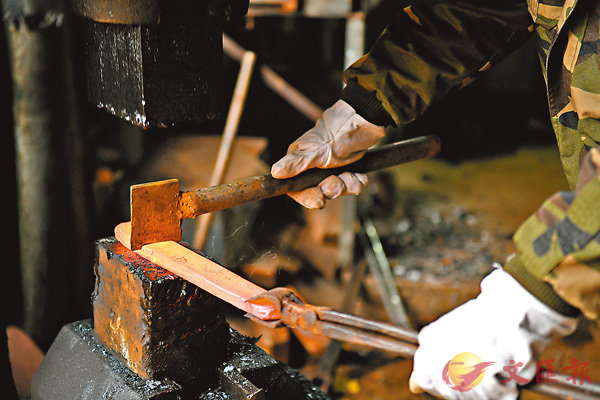 ■打鐵趁熱,要指明打哪塊鐵,就要加「the」在鐵之前。 資料圖片
■打鐵趁熱,要指明打哪塊鐵,就要加「the」在鐵之前。 資料圖片「Strike while the iron is hot.」是「打鐵趁熱」的原句,雖然早前的文章曾指物質名詞(Material Nouns)一般是不用「the」的,可是若要指定那些正要處理的鐵,那火熱的鐵,而不是鐵匠還未處理的原料,所以要來個變奏,從原本沒有「the」的「iron」加上了「the」。
再看以下例子:
The schools watchdog (condemn that) the education of children with special educational needs and disabilities, warning that provision is "disjointed and inconsistent", ... (in) which they are entitled.
("Ofsted condemns 'disjointed' special educational needs provision", The Guardian)
這個用於有特別需要與殘疾兒童的教育的名詞:"the education of children",也是使用了「the」,而筆者認為學業比「教育」更合適,education是抽象名詞(Abstract Nouns),可是用於指定的一群人,則要來個變奏,就如「go to school」是上學,「go to the school」是前往校舍。也許寫文章時不能把名詞用熒光筆來區別,唯有把「the」來作開關。
本文是冠詞最後篇,在此來個小結和分享。有教英語老師提議:「Think in English」,即是用英文來思考,未能在說英語的環境生活,又談何容易。當寫最好(the best),最好之一(one of the best),又或相同(the same),也許已成自然反應,而香港人亦口語化地以「嗰個」,甚至「即係嗰個」來翻譯the,並無可不可。
要恰到好處,就要注意名詞所在的場合和身份,當我們談一頭獅子,會先用a lion,其後才可用the lion來跟進;可當我作為貓科下的整個子種族,便須一開始用上the lion。■林健根 會計師
隔星期五見報

